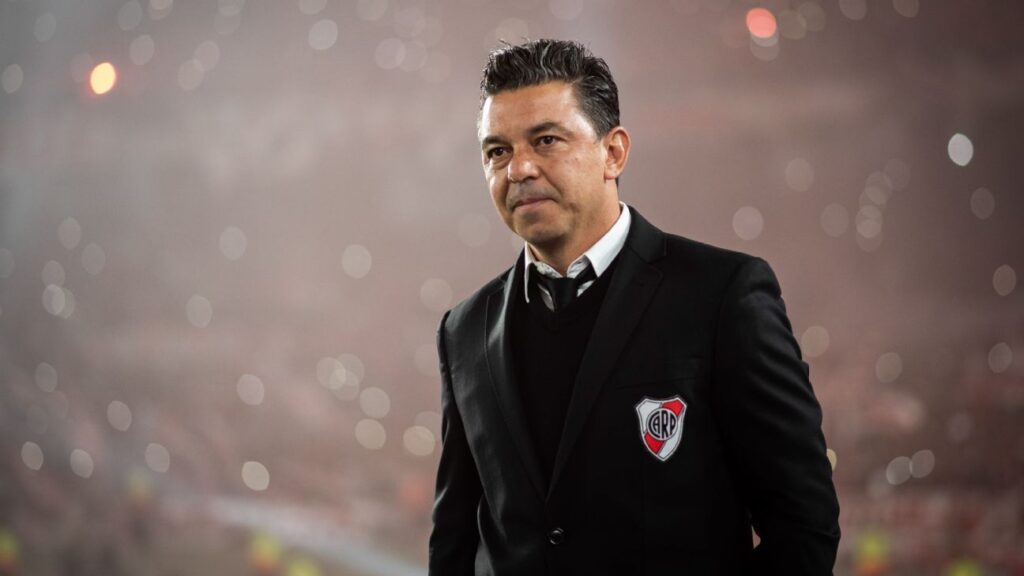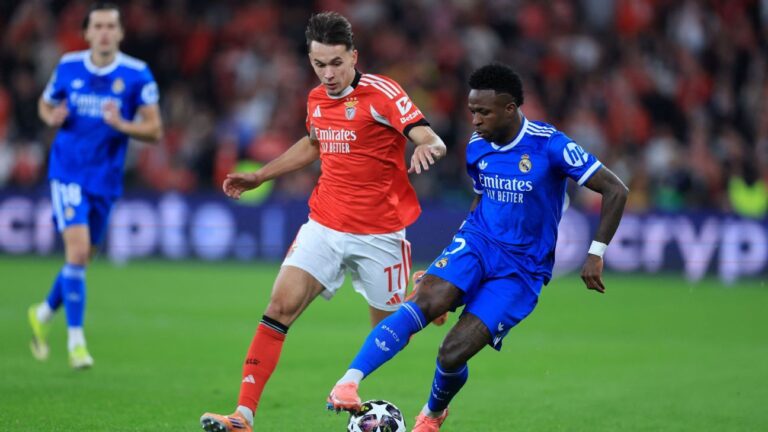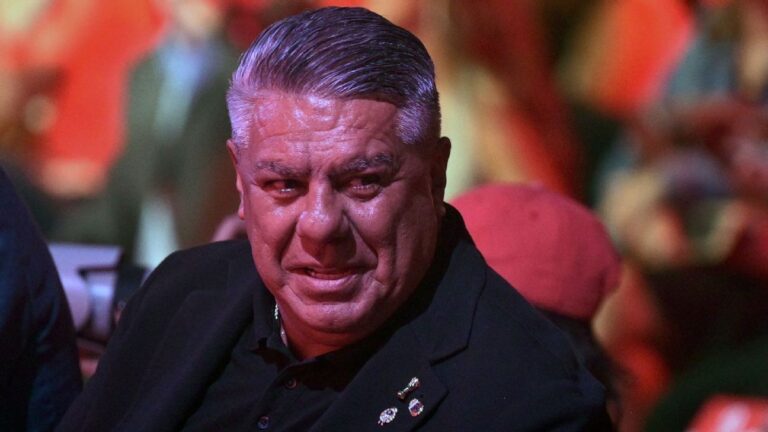As the summer transfer window approaches and players and coaches jockey for position to find a space in someone’s plans for next season, an intriguing question hangs over Buenos Aires and the world — where will Marcelo Gallardo end up?
An epic spell in charge of River Plate has made Gallardo a hot name as he is regularly linked to all kinds of coaching vacancies. As a player during a particularly successful stretch for River during the ’90s, he’s perhaps is overshadowed in the memory of many by Ariel Ortega.
But Gallardo was an excellent attacking midfielder in his own right, good enough to win over 40 caps for Argentina as well as being chosen as the best player of the French league’s 1999-2000 season in which he helped AS Monaco win the competition. Small in stature, fragile in build and not blessed with electric pace, Gallardo the player had to use his brain as well as his talent to reach the top. His two apparently contrasting nicknames — “the doll” and “Napoleon” — help tell the story.
The 47-year-old babyfaced Gallardo is a keen eyed strategist, a general who can point to many more wins than defeats — especially in that memorable spell with River Plate, the club where it all started for him. He played for River, for Monaco and Paris Saint-Germain in Ligue 1, briefly for D.C. United in MLS before hanging up his boots with Uruguayan powerhouse Nacional — all the while preparing for a coaching career.
Nacional gave him the opportunity. He won the domestic title with them one year as a player, and the next as a coach — and then, in 2014, he went home to River. To survive for two years in charge of a top South American club is usually seen as a lengthy spell. Gallardo stayed for more than eight, clocking up the titles until he finally stepped down at the end of 2022.
Among those titles, there is one which sticks out far more than the others — the Copa Libertadores. Gallardo won it as a player in 1996, and after a few barren years during which River had even spent a season in the Argentine second division, he coached them to continental triumphs in 2015 and 2018.
The latter, especially, will be remembered for as long as football exists. It was the first ever final between River and eternal rivals Boca Juniors, such a high octane affair that the second leg — postponed after River fans attacked Boca’s team bus — had to be taken away from Buenos Aires for safety concerns and played in Madrid.
Had he achieved nothing else in his career, Gallardo would be an eternal River legend just for that victory. After that, though, it is a story of diminishing returns, with Gallardo finding it increasingly tough to compete with the Brazilian clubs in the Libertadores. In 2019, his side were a couple of minutes away from beating Flamengo in the final until they imploded in the last few seconds and lost 2-1. The following year they went down again to Palmeiras in the semifinals despite nearly overcoming a three-goal deficit from the first leg.
In 2020, River exited a round earlier, beaten home and away by Atletico Mineiro. And last year the campaign ended even sooner, beaten in the second round 1-0 on aggregate by neighbours Velez Sarsfield, who ended up capitulating 6-1 to Flamengo in the semifinals.
Every season, then, the dream of winning another Libertadores was becoming more distant. It might have been better had Gallardo gone sooner. But from another perspective, perhaps he went too soon. River have since remodelled their venerable Monumental stadium. It now has the biggest capacity in South America and the atmosphere has been massively improved by having the 80,000 fans much closer to the pitch. But it is the new coach, Martin DeMichelis, who is enjoying the benefits.
Gallardo would have loved surfing on the wave of emotion that the stadium is now supplying. And he makes it clear that emotion will play a significant part in his choice of club. Gallardo wants to feel a connection with his place of work. He would be a bold choice for a big European club.
An obvious comparison is with his one time national teammate Diego Simeone. But there are key differences. After years in Europe, Simeone knew the Spanish league and had a fierce connection with Atletico Madrid, where he won the domestic title as a player. And his model of play stresses the pragmatic.
Gallardo is more of a dreamer. He wants to attack, to be on the front foot. He will tinker endlessly with the shape of his side — occasionally going with a back three, or switching through numerous variations. But he will see all of these as, on the day, the best way to put into practice an idea of attacking play, with width and high tempo passing through the middle.
Some might be alarmed by his record in the Club World Cup — seen as a very big deal in South America. In 2015 his side could not lay a glove on Barcelona, and went down to a tame 3-0 defeat. And three years later they failed to make the final, going down on penalties to Al Ain of the United Arab Emirates after being held to a 2-2 draw.
So can he do it outside South America? He is surely going to get a chance. Gallardo might even be a brave and romantic option for Tottenham Hotspur, reinforcing the Argentina-North London connection that once saw Ossie Ardiles on the pitch and Mauricio Pochettino on the touchline. At one point it is not hard to imagine him taking over at PSG, where he once played and where his commitment to attack would be a good fit. But that is surely one for the future. Napoleon will have to win some battles elsewhere before he is handed the keys to Paris.




